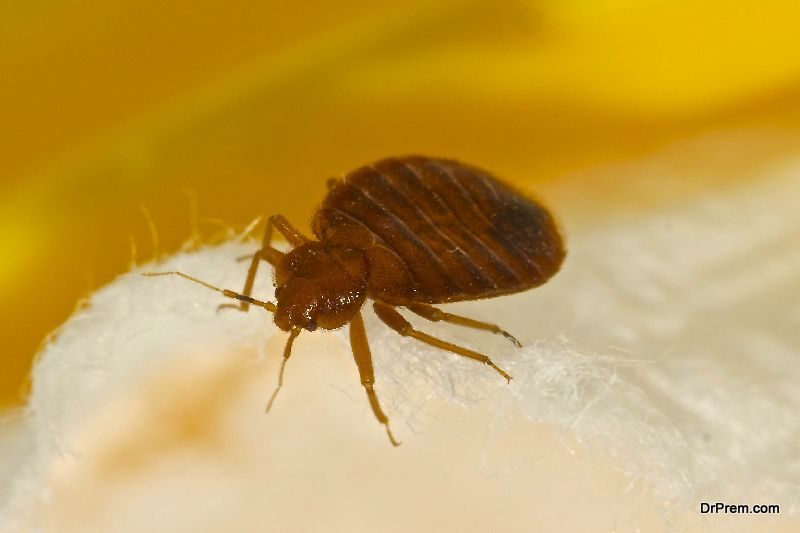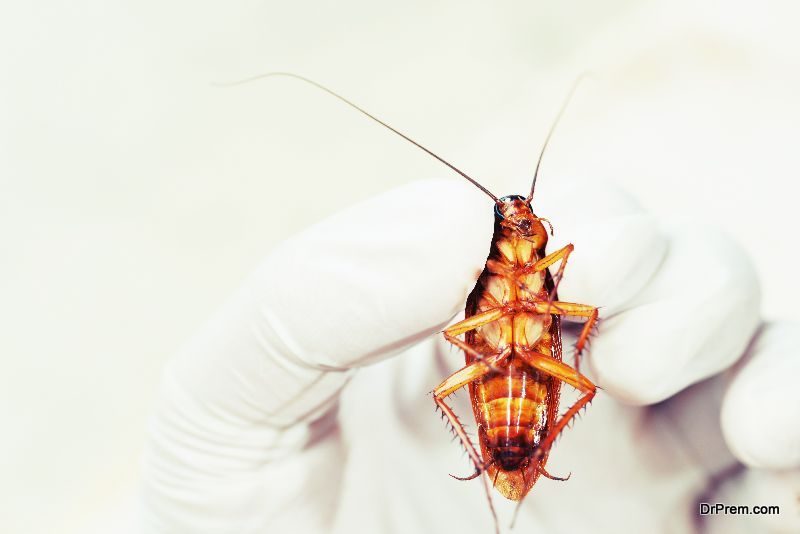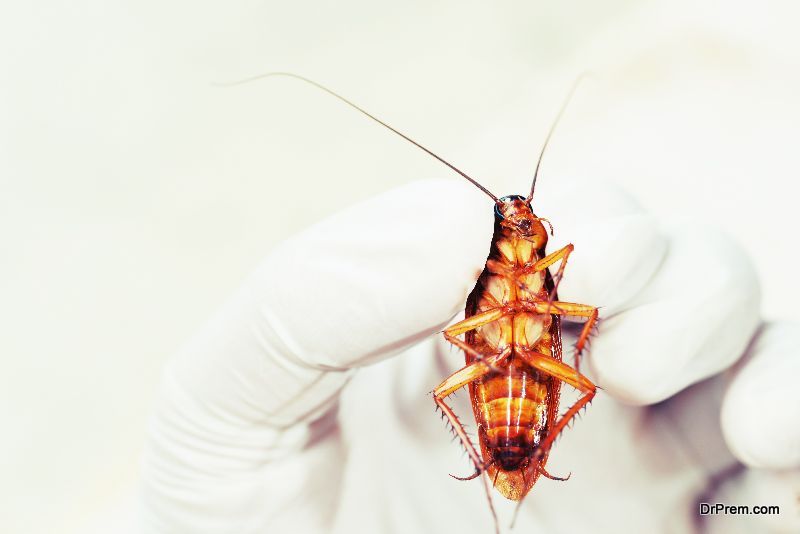Most homeowners know that at one time or another they’ll encounter some type of bug or insect in or around their home. Some common pests include termites, ants, and bed bugs. But did you know that not acting on these infestations can actually be a health risk for you and your family?
Here we’ll discuss the most common and unwanted infestations and how they can affect your health if not treated properly and immediately.
Bed Bugs

Just the name is likely to make your skin crawl, but bed bugs are actually much more common than you think. Not surprisingly, bed bugs are found in and around your bed and mattress. Bed bugs feed on human blood and can actually live up to one year between feedings.
Bed bugs are most commonly found in areas with high traffic and turnover. That’s why infestations are common in hotels, apartments, and dorm rooms. Because of their small, flat body, bed bugs can hide just about anywhere and sometimes go undetected.
So how do you know if you’re under attack? The most common and immediate response is the development of a rash or welts on the skin. These can occur anywhere between a few hours and 14 days following a bite. Luckily, bed bugs don’t carry any type of disease or transmit illnesses. They do, however, leave behind itchy and irritated skin. Not to mention, some victims suffer from anxiety attacks and even insomnia following an infestation. And who can blame them? The thought of sleeping with bed bugs is far from pleasant.
If your home has been infected by these tiny, oval shaped critters, there are several things you need to do. First, check all areas in and around the bed, including the seams of your mattress, headboard, furniture, clothing on the bed or floor near the bed, and behind the wallpaper. Any clothing, towels, or bedding should be washed and dried in the hottest settings possible. You’ll need to scrub your mattress with a stiff brush and vacuum all surfaces and crevices, disposing of the vacuum afterward. You might even consider purchasing a new mattress all together. Protect against future infestations by using essential oils like peppermint, lavender, and thyme – these scents are proven to repel bed bugs.
Rats and Mice
When you think of rats and disease do the words “black plague” come to mind? Though that seems a bit extreme, it really isn’t. Rats, mice, and other rodents are known for spreading life threatening diseases. And unfortunately, that hasn’t changed much over the course of history.
Rodents don’t actually feast on the blood of humans or animals, like some of the other pests on the list, but instead feed on leftover food, garbage, and trash found in people’s attics, basements, and other unkempt areas of the home. But once these rodents enter your home, they bring with them a variety of diseases and major health risks.
Just like fleas, rats and mice can carry the typhus disease. Rodents can also bring ticks into your home, which can cause Lyme disease in occupants. Rodents carry other diseases including:
- Hantavirus
- Plague
- Tularemia
- Lassa Fever
- LCM (Lymphocytic Chorio-meningitis)
Homeowners should be careful not to get too close to any rodents found in the home. Rat scratches and bites carry their own health risks, most commonly rat-bite fever. What makes rodent infestations even worse is that not only can these animals harm you, but you need to be weary of what they leave behind. Rat droppings, urine, and dander can cause medical issues including liver and kidney damage, as well as cardiovascular problems.
Fleas

These little pests aren’t just a problem for your pets. Fleas feast on the blood of both humans and animals and can be found in the hair of both. Fleas bite the skin in order to drink the blood of their victims and can cause some pretty nasty reactions.
Flea bites, like most insect bites, can be extremely itchy. But a scratchy scalp won’t be your only issue when dealing with these six-legged, reddish, brown hitchhikers. Flea bites can actually transmit serious diseases and cause allergic reactions in some people. An allergic reaction can cause a long list of medical issues including, but not limited to:
- Nausea
- Difficulty breathing/shortness of breath
- Chest pain
- Dizziness
- Chest pain
If you think you’re experiencing an allergic reaction caused by a flea bite, contact a medical professional immediately.
Even if you aren’t allergic to fleas, these pesky little biters can still transmit some serious diseases.
Typhus is a bacterial disease that causes a rash, severe headache, fever, and confusion. Additional symptoms can include muscle pain, stomach complications, and a dry cough. Flea bites can also result in tapeworm. Tapeworm can cause a long list of stomach and intestinal issues, along with weakness and fatigue. You might see moving segments of the tapeworm in your stool. Be aware and alert to any of the above mentioned symptoms if you discover fleas in your home.
Termites
Termites are one of the most common household nuisances and luckily they’re more of a nuisance than a medical risk. Though termites themselves do not pose a direct medical threat to humans, their presence in your home can result in adverse effects.
Did you know that termites can bite humans? But their bites, or stings, create non-toxic wounds and are not known for transmitting diseases. The most common effects of a termite infestation are asthma attacks or allergic reactions. Termite nests create dust particles, which can be spread throughout your home in a variety of ways, including heating and ventilation systems. Occupants of your home may be allergic to the saliva and droppings of termites also.
Signs of an infestation include the presence of termite Swarmers. Swarmers fly near your windows and leave behind their wings. They are most commonly present during the spring time but termites can attack all year round. Other obvious signs that you have a termite problem include visible damage to floors, walls, and ceilings.
Cockroaches

Not only are cockroaches pretty disgusting to look at, but they can also cause some pretty serious medical risks, especially in children.
Cockroaches mainly feed on paper, cardboard, and food scraps, and hang out in humid areas like basements, bathrooms, and kitchens. These six-legged critters can be as small as half an inch or as long as two inches in length. If your home is infested with cockroaches, it’s not their bites that you need to be wary of – it’s what they leave behind.
The saliva, feces, and other body parts of the roaches can cause allergic reactions in humans, specifically in children. There is a high risk for asthma attacks associated with the presence of cockroaches as well. And the risks don’t stop there. These insects can transmit some pretty serious diseases including E. Coli, parasitic worms, and Salmonella. It’s even been reported that cockroaches can harbor the Polio virus for months. These diseases are passed through the roaches’ feces.
To help prevent a cockroach infestation, make sure to clean your countertops and floors of any leftover food or debris. Seal all food packages tightly. You can even use boric acid or bay leaves in your home as a cockroach deterrent.
Catch the Problem Early
Your first line of defense against any type of insect or rodent infestation is to recognize the warning signs early. Knowing what to look for can result in early detection and treatment. Addressing the problem early on will help keep both your home and family safe and healthy.
Article Submitted By Community Writer




